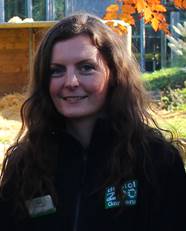Can gorillas use computers? Could this positively impact their well-being in zoos? For the first time, scientists are putting gorillas in charge of their own game-play and using hidden computer technology to measure how they solve complicated problems.

What is Gorilla Game Lab?
Gorilla Game Lab is revolutionizing animal welfare science with an innovative research project. Our team has crafted a modular maze puzzle for the Western lowland gorillas (Gorilla gorilla gorilla) at Bristol Zoo Gardens, using cutting-edge game technology. As we delve into this exciting venture, we’re exploring how technology-infused gameplay can enrich the lives of these majestic creatures. Interested in supporting our mission?
What are we researching?
Gorilla Game Lab aims to address a number of questions around animal-computer interaction, zoo welfare techniques and animal cognition. Our initial research questions include:
- Can cognitive game-play enhance the well-being of zoo-housed gorillas?
- Can higher forms of engagement such a ‘flow state’ be observed in zoo-housed gorillas?
- How does the gaming technology affect zoo visitor perception of gorilla intelligence and well-being?
Who are we?
We are a multidisciplinary team of scientists based at Bristol Zoological Society and the University of Bristol. We received seedcorn funding from the Brigstow Institute in January 2018. You can read more about the team below.
The science behind Gorilla Game Lab
Captive animals can benefit greatly when their environment includes cognitive challenges. However, research in zoos is often limited by a lack of access to modern technology. The gorillas at Bristol Zoo Gardens already have many opportunities for social interaction, but their cognitive skills could be developed much further.
We are creating a game for the gorilla social group that is stimulating, engaging, encourages play, and provides them with more choice and control in their environment. The ultimate goal is to induce a state similar to “flow” (Csikszentmihalyi, 1990) — a psychological condition of pleasure and deep involvement experienced when fully absorbed in a task.
In addition, the project will allow the zoo to better study the cognitive abilities of primates and apply the findings to enrich the lives of other species. We hope that such technologies will become an important step toward more humane and stimulating care for animals in captivity.
Meet Our Team
Collaborators
Dr. Kirsten Cater is a Reader in Human Computer Interaction at the University of Bristol having received and managed over £3.3 million in research funding from AHRC, EPSRC, ESRC, ESA, Nuffield, RCUK, Innovate UK and NESTA. She works with a diverse range of users to create novel and interactive technologies to enhance people’s experiences. She is particularly looking forward to working within this new partnership and applying her breadth of expertise in human computer interaction to animals.
Tom Metcalfe is a Teaching Fellow in the Centre for Innovation and founder of Thomas Buchanan design studio.
Students
Current Students
Otto Brookes is a Masters student in Computer Science at the University of Bristol. Otto is investigating machine learning for the facial recognition of zoo gorillas.
Betty Roberts is a Masters student in Global Wildlife Health at the University of Bristol. She is investigating the effect of module complexity on its use as cognitive enrichment.
Lucy Mason is a research placement student at Bristol Zoo Gardens, assisting the team with coding footage of gorilla behaviour.
Gorilla Game Lab Alumni
Anja Kadijevic studied for her Masters in Computer Science at the University of Bristol. Her thesis is researching how the Internet of Things can be an aid to the Gorilla Centred Design approach.
Saxon Zerbino studied for his degree in Computer Science at the University of Bristol. His thesis was “Analysing Gorilla Interaction with Tangible Objects” and developed methods of visually tracking game elements inside the gorilla enclosure.
Nathan Biggs was a Bachelors student in Integrated Wildlife Conservation at the University of the West of England. Nathan investigated the lateralized behaviour of gorillas using the Game Lab device.
Mark Richardson was a Bachelors student in Wildlife Ecology and Conservation Science at the University of the West of England. Mark investigated the wider effects of the Game Lab device on gorilla social behaviour.
Rose Tan, Roman Vuchtrl, Jingruo Deng – Innovation and Entrepreneurship Masters Graduates 2018. During the Spring of 2018, a team of three students enrolled upon the University of Bristol’s Innovation and Entrepreneurship Masters programme, endeavored to explore the questions regarding the suitable roles technology could bridge the gap between zoo-housed animals and human visitors.
Our Partners














